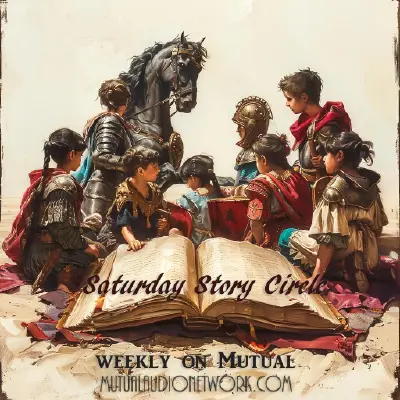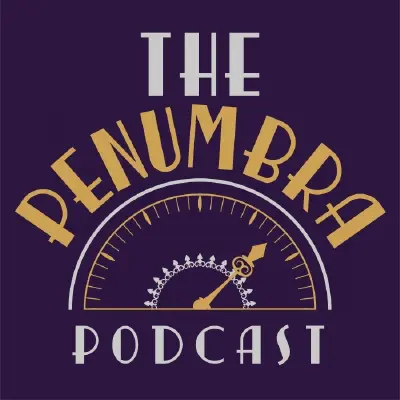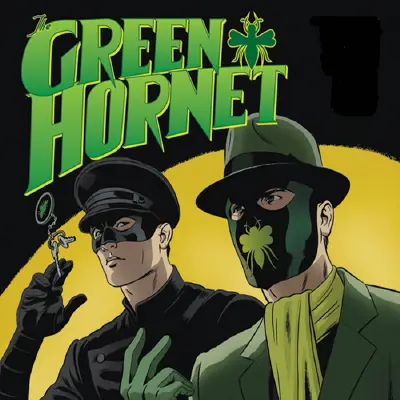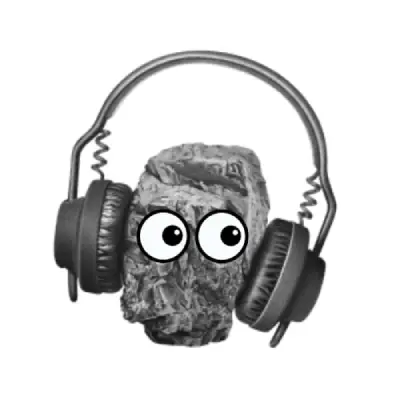Podcasts about Performing Arts
Episodes about Performing Arts
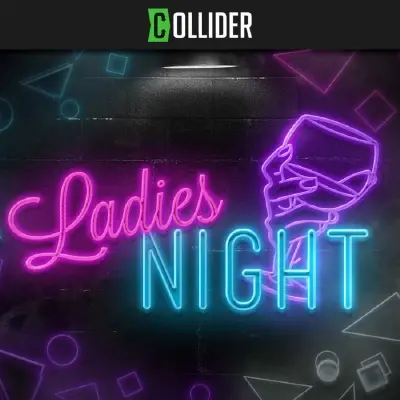
Jul 12, 2025
Superman Interview: Mikaela Hoover on Playing Cat Grant and Joining the One Piece Cast
Collider Ladies Night & Collider Forces ❭
If you frequent Collider Ladies Night, you’re well aware that I’m a big proponent of filmmaking families — frequent collaborators who stick together and also add new additions to the family every step of the way. Mike Flanagan’s “Flanafamily” is a big one, and it’s a topic that keeps popping up with Molly Gordon, who’s recently found great success collaborating with close friends on films like Theater Camp and Oh, Hi. Yet another top-tier filmmaking family? The one James Gunn started and continues to thrive with, and that family has a member you’re going to be seeing a whole of in the coming weeks, months and years. It’s Mikaela Hoover.In celebration of the release of Superman, in which Hoover plays Daily Planet gossip columnist Cat Grant, she took the time to swing by the Collider Ladies Night studio and recap her journey to joining three of the biggest franchises of all time - DC, Marvel and, most recently, One Piece. It’s a list of accomplishments that certainly can be traced back to Hoover’s natural talent, but as we often discuss on Ladies Night, in film and television, finding someone who sees you and what you’re capable of can be essential. Hoover found that in Gunn. Hosted on Acast. See acast.com/privacy for more information.
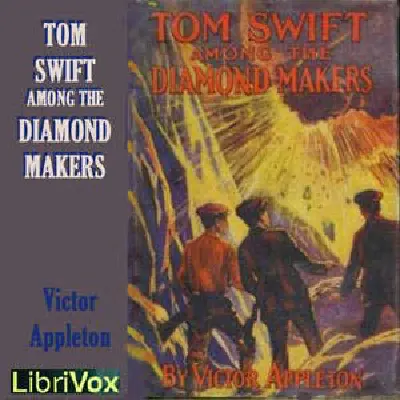
Jul 12, 2025
Tom Swift Among the Diamond Makers- Chapter 13: On Phantom Mountain
Saturday Story Circle ❭
Tom Swift is continuing his adventure among the Diamond Makers with Chapter 13: On Phantom Mountain!
Learn more about your ad choices. Visit megaphone.fm/adchoices
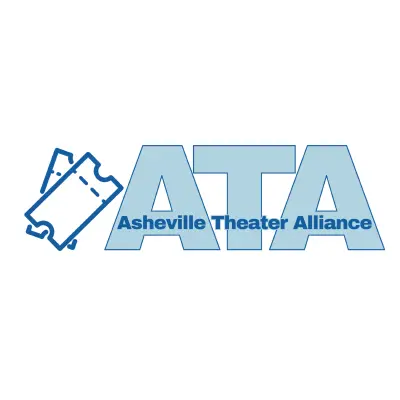
Jul 10, 2025
Heather Maloy, Terpiscorps Theatre of Dance
Asheville Theater Alliance (ATA) "Behind the Curtains" Weekly Podcast ❭
The Founder and Artistic Director of the ballet company Terpiscorps was the latest guest on the "Behind the Curtains" podcast being produced by the Asheville Theater Alliance. In our wide-ranging interview, she tells us how she got in the dance arena from an early age, some impressive accolades and honors she earned while still a teenager, the impetus behind her founding Terpiscorps and its unique benefit it provides dancers, and an interesting factoid about "The RIte of Spring" composed by Stravinsky. We also go into her process for choreographing new dance productions and her advice to patrons who are a little intimidated by ballet. Finally, get all the details about the deep and moving upcoming production of "Appalachian Phoenix" which honors the heroes of Hurricane Helene.
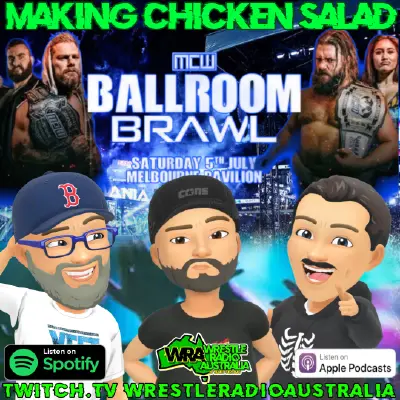
We are talking a massive weekend in Aus Wrestling as we review MCW Ballroom Brawl and in the U.S it’s counterprogrammingpalooza and we’re previewing it all plus what we thought was Chicken Salad and Shit this week in Pro Wrestling MCW Ballroom Brawl link : https://www.youtube.com/live/HkQ4SxxEeK0?si=0kHesVeSOXaw8zjq #WWE #AEW #NXT #NJPW #ROH #MLW #GCW #youtube #applepodcasts #Spotify #australianwrestling #Vodcast #podcast #supportyourlocalpromotions #supportyourlocalwrestlers X/Instagram - @WrestleRadioAU @Beasteastman @LachlanAlbert @Geoff_setty @JamieAppsMedia Check out all our WRA merch at www.redbubble.com/people/toddy33?asc=u All profits from the purchase of these products are donated to Gotcha4Life and Beyond Blue supporting mens health issues Hear over 11 YEARS of WRA interviews, reviews and more at WrestleRadioAustralia.com Subscribe on YouTube, Apple Podcasts, Spotify, Twitch, iHeart Radio, TuneIn Radio... it's FREE

Can't Tear My Eyes From You, Chapter 1: Icebreaker. Hoping to win a grand prize that promises safety and security in frightening times, a young couple prepares to join a reality TV competition. Cast:Marge Dunn as Raine Randolph and ClaudiaAmanda Egbu as Georgia WhittakerEleanore Cho Fellerhoff as Holliday Murdock and LydiaJoshua Ilon as Dennis CruzQuinn McKenzie as Capote Whittaker and DaveMelody Perera as Anouk KalharaStefano Perti as Dennis Lang and BillMarc Pierre as Sergeant Murdock and the “Confess Your Crimes” hostAlexander Stravinski as The Host and Marcus(Trigger warnings can be found at the bottom of this episode description and at the end of the transcript.)-------You can find all of our transcripts here. Transcripts will come out along with the public release of the episode and include all required SFX attributions.On staff at the Penumbra:Ginny D'Angelo -- Head of Merchandise and OutreachMelissa DeJesus -- Script editing teamHarley Takagi Kaner -- Co-creator, Head of Episode Development, Director, Sound designerJoelle Kross -- TranscriptionistNoah Simes -- Production managerGrahame Turner -- Script editing teamKevin Vibert -- Co-creator, Head of Operations, Lead writerRyan Vibert -- Composer and performer of original musicJeff Wright -- Graphic designer--------The triggers below may be relevant to episode 1 of Thirst or to the series as a whole. It is not comprehensive, but we will include a more specific list of triggers with every episode. Please consider these as you decide whether Thirst is right for you:- Climate disaster/climate horror- Apocalyptic scenarios- Sudden loud noises- Violence and threats of violence- Abuse of power- Dictatorship, fascism- Characters speaking in ways that suggest prejudice of most kinds: homophobia, sexism, transphobia, racism, ableism, etc.- Body horror and gore- Violence towards animals- Illness, starvation, malnutrition, dehydration, etc.- Public humiliation- Depictions and descriptions of intense military violence- Coercion and manipulation- Sexual scenarios- Profanity- Unwanted sexual advances- Exploitation of people in need- Isolation and abandonment- Gaslighting/propaganda/organized attempts to misrepresent realityYou can find early and ad-free episodes, production scripts, commentary tracks, blooper reels, livestreams with the creators, and much more, at The Penumbra Podcast: SPECIAL EDITION. Hosted on Acast. See acast.com/privacy for more information.
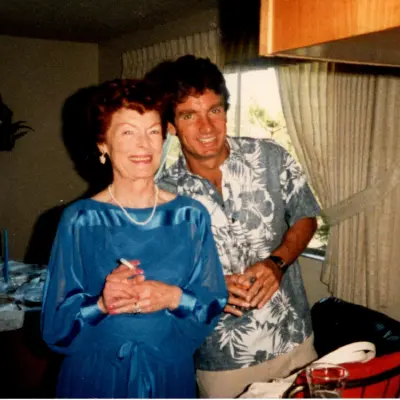
Thereupon, not unlike Captain Cook, I shoved off to where no man had gone before.
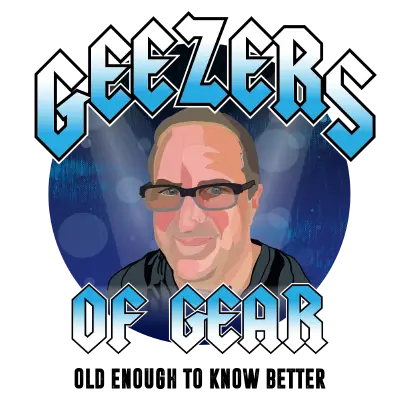
Jul 09, 2025
#316 - Nils Thorjussen - The Future of Drone Shows: Safety and Innovation
Geezers of Gear ❭
Nils Thorjussen – Executive Chairman, Verge AeroNils is a pioneering entrepreneur and technology executive with over three decades of experience shaping the entertainment technology landscape. Now as Executive Chairman of Verge Aero, he’s leading the way in drone show technology, making drone entertainment smarter, safer, and more spectacular.He co-founded Flying Pig Systems (creators of the Wholehog consoles) and Element Labs (known for early LED innovations like VersaTube).Nils was last on the show back in 2019, visit Geezers Of Gear.com to listen to his first episode if you missed it!In this conversation, Nils discusses the evolution of drone technology and its integration into entertainment, particularly in drone shows. He emphasizes the importance of safety standards and regulations, the complementary relationship between drones and fireworks, and the future potential of AI in enhancing drone shows. The conversation also touches on industry challenges, the significance of training, and the need for international collaboration in establishing standards.Thi episode is also brought to you by Elation and Main Light
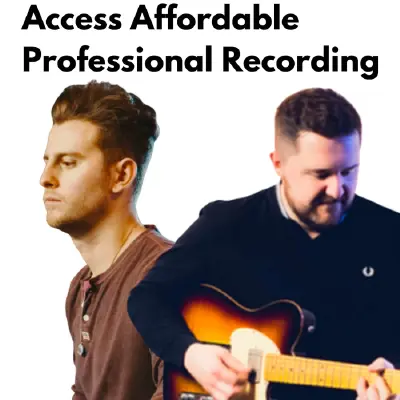
Jul 09, 2025
Affordable Professional Recording Services For Indie Christian Artists | TORS
The Writing Worship Podcast - For Worship Songwriters ❭
We sit down with Joe Wadsworth (Founder) and Danny Beck (Producer) of The Online Recording Studio (TORS) to discuss how to have your music expertly recorded, produced, and distributed by their award-winning team. We answer Q&A questions from attendees of a live Writing Worship Webinar.Links mentioned in this podcast...Schedule A Consultation Call and Get The 10% Discount On Your First Booking Watch TORS Artist TestimonialsApply now for the Worship Songwriter Mentorship. Our foundational course for all songwriters. Over 700 worship songwriters have taken and graduated from the 9-week cohort-based mentorship program. You can apply on the WritingWorship.co website.Support the showTake the Songwriter Personality TestFollow us on Instagram and Subscribe on YouTube Join the Writing Worship Community on FacebookRead the Writing Worship Book by Krissy NordhoffWriting Worship champions the worship songwriter - visit WritingWorship.co to get more involved. Learn more about how to... Apply for the Worship Songwriter MentorshipJoin the Writing Worship Retreat - Fall 2025Get Songwriting Coaching with Rebekah White WilliamsGet the Ultimate Songwriter Development Bundle (All Courses + eBooks)
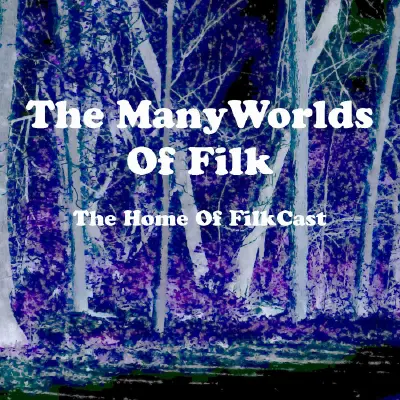
Send us a textMusicJulia Ecklar - Fellowship Going South - Indistinguishable From MagicJRR TolkienFeng Shui Ninjas - livin every dae as though yer deidTerry PratchetCynthia McQuillin - Fever Dreams - Moon ShadowsFevre Dream by George RR MartinAnne McCaffrey Tania Opland Mike Freeman - Fighting Thread - The Masterharper Of PernDragonriders Of Pern by Anne McCaffrey Kathy Mar & Zander Nyrond - Flowers For Algernon - Best Classic Filk SongFlowers For Algernon by Daniel KeyesWater Street Bridge - Frodo Come Down to Mount Doom - Filkers HandbookJRR TolkienSummer Russell - Frodo's Song - Courage - Dear HeartJRR TolkienDave Clement - Green Hills Of Harmony (Hal Frank and Hamish Henderson) - Shai Dorsai!Gordon R. Dickson's Dorsai booksSunnie Larsen - Homecoming (Debbie Ridpath Ohi) - The Space Between NotesThe Rocket Man by Ray BradburyBrenda Sutton - Hound Of The Baskervilles - Harlequinade - Nolacon IIHound Of The Baskervilles by Sir Arthur Conan DoyleBill Roper - I Am The Destroyer - Highlights From FilkCon 2Gordon Dickson's Soldier Ask NotThree Weird Sisters - In A Gown Too Blue - Rite The First TimeThe Domesday Book by Connie WillisLeslie Fish - Invocation of Cthulhu - Avalon is RisenHP LovecraftChuck Rein - In Western Lands - In Western Lands 7''JRR TolkienLawrence Dean - Labyrinth Of Shadows - Labyrinth Of ShadowsGormenghast by Mervyn PeakeDandelion Cornerhttps://dandelion-corner.com/https://live365.com/station/Dandelion-Corner-a18657Wôks Print Cataloghttps://woksprint.com/product-category/musicPegasus Brainstorming Poll Resultshttps://www.ovff.org/pegasus/opinions.htmlPegasus Awards Nomination Ballot!https://www.ovff.org/pegasus/2025nomballot.htmlFundraisersDreamflight Theatrical Gymnasticshttps://www.gofundme.com/f/saving-dreamflightConventionsConfluence - July 25-27https://confluence-sff.org/confluence-2025Online FilkEurofilk CircleJuly 1018:00 Central European TimeFestival Of The Living Rooms Festival of the Living Rooms - Sept 12-14 - December 12-14Friends Of Filk BytesJuly 19Bandcamp waives their fees Friday August 1, Sept 5, Oct 3, Dec 5All money goes directly to the artist!Get on the MASSFilc email listhttps://www.massfilc.orgFilk InformationFilk Newshttps://liberal.city/@filknewshttps://liberal.city/@filknews.rssFriends Of Filkhttps://friendsoffilk.orgGeekspin Podcasthttps://geekspinpodcast.castos.com/Filk Questhttps://www.youtube.com/c/vanceamaniaVintage Filk Preservationhttps://www.youtube.com/channel/UC0EXmacvKF3MDrKZbzmux6gHouse Concerts and House FilksPhil Mills and Jane Garthson House Filk July 19thEmail jane at garthsonleadership.ca for details and to RSVPNational Suicide Prevention LifelineHours: Available 24 hours. Languages: English, Spanish.800-273-8255Links to the Podcasthttp://filkcast.comhttp://facebook.com/groups/FilkCasttiedyeeric at filkcast.comFor a searchable list of everything played on FilkCasthttps://filkcast.blogspot.com/2021/07/the-complete-list_25.htmlIntro Music - Following Our Dreams - Lawrence Dean

